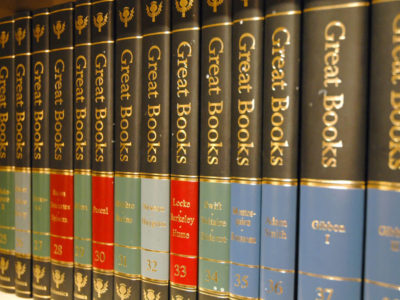Whether you’re a terrified senior about to embark on the rest of your life or an even more terrified freshman just figuring out you hate biology, it’s never too late or too early to think about grad school for English. Generally, English majors apply to grad school for another dose of literature and papers, but don’t feel trapped: as long as you’re qualified, any major can apply. Just like college, starting the grad school application process can be intimidating after hearing grad students complain that they have no life anymore. Do I know enough about criticism? Are my papers good enough? Have I read enough books? Have I read the right books? Should I have memorized Ulysses? Leave it to these trusted professors to tell you what books you should read before committing to those apps.
1. In Search of Lost Time by Marcel Proust
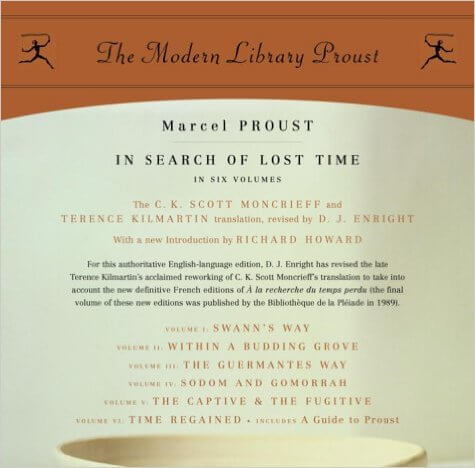
“My own most compelling reading experience, I mean of my life, was first reading Marcel Proust’s novel, In Search of Lost Time when I was in my early 20s. It’s not a book for everyone, in part because it’s seven volumes long, in part because it is not plot-driven, in part because its sentences wander and tarry and exfoliate well beyond all impatience and imagination. But the work was for me, and remains, exhilarating: I’ve read it twice, once in English and once in good part in French, and now I go for long walks through its towns and woods and beaches and cities whenever I get the hankering, which is at least once a year.” – Walter Jost, professor at University of Virginia
2. Getting What You Came For: The Smart Student’s Guide to Earning an MA or Ph.D. by Robert Peters
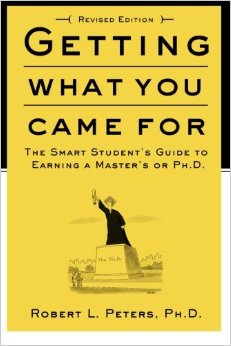
“My favorite is still Getting What You Came For: The Smart Student’s Guide to Earning an MA or Ph.D., by Robert Peters (FSG, 1997), from the sentiment of the title to the wise content of the book itself. Peters gives applicants to graduate programs a brisk and accessible informational guide, while crucially helping to train their expectations so that applicants do the important work of assessing what they really want from a graduate program, beyond admission into it, and whether it’s truly the right fit for them. Far better to begin that assessment before the applications are sent out.” – Christopher Lane, professor at Northwestern University
3. Paradise Lost by John Milton
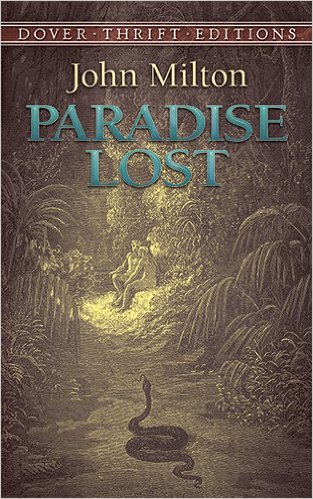
“Milton’s Paradise Lost, even if you’ve read it before. Read it again, slowly, parsing each sentence, or many sentences and reading the notes in your edition. The advantages of doing so go beyond knowing much better the single greatest poem in English. They also give you an idea of what it means for there to be a rich scholarly tradition on a single author. The experience and the knowledge will prove surprisingly invaluable in other fields of literary research, whether Chaucer or Pynchon, Beowulf or Derek Walcott.” – Gordon Teskey, professor at Harvard University
4. PMLA (The Modern Language Association’s journal)

“The top journal in the field, PMLA, is really representative of the kind of approaches that are current today. It wouldn’t hurt to go to a college library or search online and read articles in an issue of PMLA. It won’t all be easy at first, but you’d get the idea of what graduate students learn to do.” – Alison Booth, professor at University of Virginia
5. Lyric Poetry and Modern Politics by Clare Cavanagh
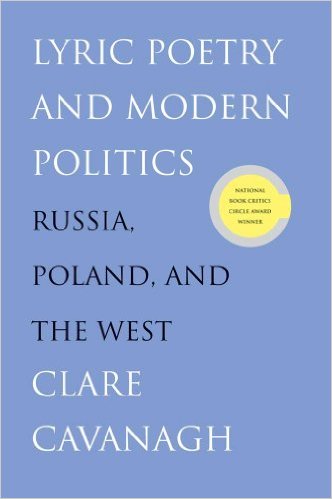
“If you want to study modern poetry in an academic way, you should read Clare Cavanagh’s Lyric Poetry and Modern Politics, whose clear prose and careful, persuasive international attention not only shows how to read several major modern poets but dispels fallacies that otherwise might dog you for years.” – Stephen Burt, professor at Harvard University
6. Keywords by Raymond Williams

“I would recommend Raymond Williams’ Keywords. This book, first published in 1976, constantly in print since then, and now available in a revised edition, provides superb historical and theoretical introductions to many of the crucial concepts in literary and cultural studies. I introduce students at Brown University to this book at the beginning of all my undergraduate courses. In graduate courses I continue to regard it as foundational.” – William Keach, professor at Brown University
7. Adventures of Huckleberry Finn by Mark Twain
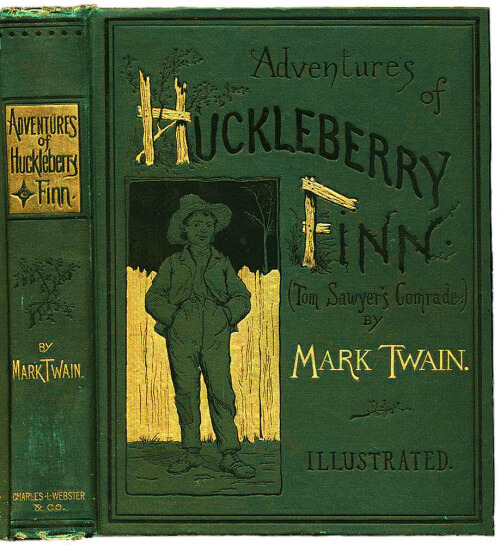
“I would read Adventures of Huckleberry Finn because it is such a living text. It is central to American realism and literature of race and slavery, but its afterlife (to this very day) has a self-reflexive quality: censorship, issues of race, why literature or the “great American novel” matters to controversies about race in American culture; in addition Twain’s novel registers important moments in the histories of authorship, literary professionalism and technologies of publication.” – Philip Gould, professor at Brown University
8. Fahrenheit 451 by Ray Bradbury
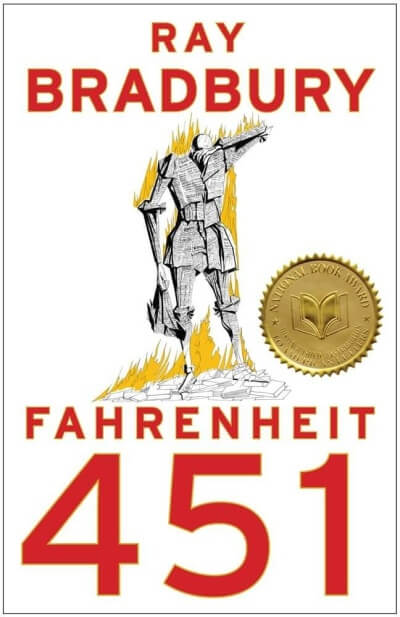
“I suggest Ray Bradbury’s Fahrenheit 451, which I use in my Science Fiction course. As you may know, the book is set in a future America where books are banned because of a populace that has lost the ability to think on its own, to see gray instead of black and white, that prefers passive entertainment instead of reading and reflection. Consequentially, the society is self-destructive because people have become alienated from nature, from other people and from a more real self. It is also a beautifully crafted novel.” – Gary Goshgarian, professor at Northeastern University
9. Classic Criticisms on Classic Criticisms

“I think some of the old classics are the best preparation for grad school because they have very intelligent broad surveys of possible ways of looking at large groupings of texts. My basic list would be Northrop Frye’s The Anatomy of Criticism, Meyer Abrams’ The Mirror and the Lamp, Hugh Kenner’s The Pound Era and J. Hillis Miller’s Poets of Reality.” – Charles F. Altieri, professor at UC Berkeley
10. But seriously…Paradise Lost
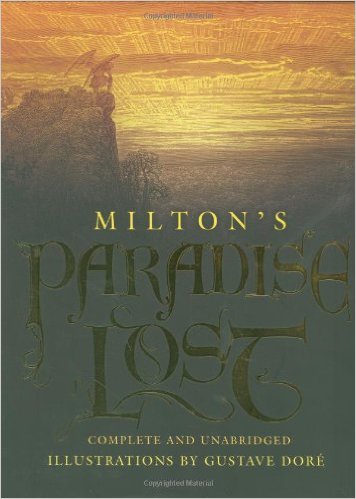
“Read the classics. Increasingly the survey courses that English Majors take can’t be relied on to give them the basic grounding that will serve them well in a graduate program, whatever their period or area of interest (although ours does better than most.) If I had to name one text, I’d say: Milton’s Paradise Lost. It inflects all the projects of poetry in English that come afterwards, well into the 19th century. If not that — then some of the big 19th-century novels: Scott’s Waverley, Dickens’s Bleak House, George Eliot’s Middlemarch, Moby-Dick.” – Ian Duncan, professor at UC Berkeley

